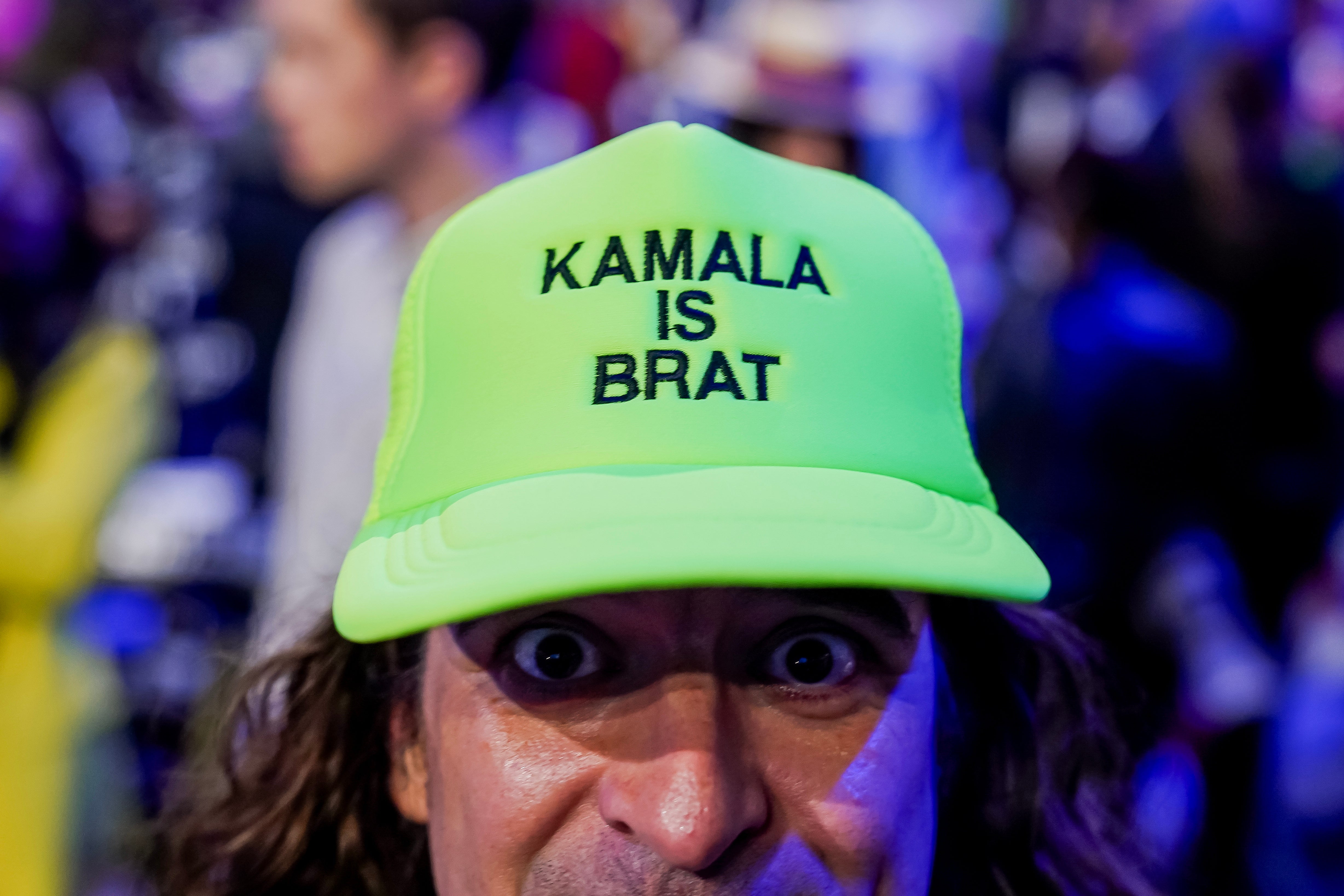Trump fans say ‘the left can’t meme’ – but do they really need to?
Kamala Harris may want to think twice before she goes all in on Rickrolling and LOLcats, writes Ryan Coogan


Your support helps us to tell the story
From reproductive rights to climate change to Big Tech, The Independent is on the ground when the story is developing. Whether it's investigating the financials of Elon Musk's pro-Trump PAC or producing our latest documentary, 'The A Word', which shines a light on the American women fighting for reproductive rights, we know how important it is to parse out the facts from the messaging.
At such a critical moment in US history, we need reporters on the ground. Your donation allows us to keep sending journalists to speak to both sides of the story.
The Independent is trusted by Americans across the entire political spectrum. And unlike many other quality news outlets, we choose not to lock Americans out of our reporting and analysis with paywalls. We believe quality journalism should be available to everyone, paid for by those who can afford it.
Your support makes all the difference.I don’t mean to sound a thousand years old, but when I was a kid repeating somebody else’s joke over and over until it became interminable wasn’t called a “meme”. It was called “being the most annoying kid in school”, and we all hated that person (I was that person).
Now, though, memes are all the rage. Once the prime tool of communication for always-online basement dwelling nerds, now everybody and your mother seems to know about being “demure”, or who the “Hawk Tuah” girl is. It’s even gotten to the point that politicians are getting in on the action: Joe Biden embraced his “Dark Brandon” persona, even selling merch to that effect, and our own health secretary Wes Streeting hit James Cleverly with a “Sure, Jan” just a few weeks ago.
They’ve also started to seep into the Kamala Harris campaign, with the Democratic candidate accepting Charli XCX’s endorsement of her as typifying the “brat” aesthetic, and supporters sharing TikToks of her now-famous “coconut tree” speech. Her running mate Tim Walz even made a cheeky reference to the JD Vance “couch” meme during his acceptance speech.
It makes sense – politicians need to be keyed into the zeitgeist in order to connect with voters – but you have to wonder whether trying to harness the power of memes could come back to bite Democrats. It’s been a long-held belief of the political right that “the left can’t meme”. Will the Harris campaign prove them wrong? And more importantly, should it?
First of all, it’s important to establish what a meme even is. At one point, the term “internet meme” referred specifically to in-jokes shared by people who used the internet – a much smaller demographic back then than it is today. Like any cultural product, they were a way of establishing a shared identity among people who may never even meet one another, and since they originated on the internet, they tended towards the slightly geeky – “all your base are belong to us” is from an obscure Japanese video game, “it’s a trap” was a quote from Star Wars, and the” Roflcopter” was a piece of ASCII art used to convey laughter. We’re talking real nerd s***.
Now, though, a “meme” seems to be anything that people find funny on the internet, and that can be repeated ad nauseum until it’s no longer funny (that last part is very important). A funny picture? That’s a meme. A tweet? Sure, that’s a meme too, why not. Is this article a meme? Am I a meme? We may never know.
The big difference between then and now, though, is that older memes had real staying power. Once one took hold, you’d see it everywhere for months, in some cases years. Rickrolling started back when I was in high school, and people are still doing it.
Now, though? People get sick of memes the same way they get sick of anything. They’re ephemeral, driven into the ground in a matter of days – often hours – buried under so many layers of irony that we lose sight of why we found them funny in the first place. In extreme cases, people turn on them entirely, labelling them “cringe” – the worst thing a thing can be, if Gen Z is to be believed.
That’s the real danger of trying to embrace memes in an effort to be cool – the memes are only cool for so long as the mainstream fails to embrace them. Sure, Kamala may be “brat” right now, but it’s entirely possible that label could become a scarlet letter before this election cycle is over.
Of course, that isn’t always the case. Arguably the first time politics and memery became one was during the 2016 American presidential campaign, when the difference in the way Donald Trump and Hillary Clinton’s fanbases deployed memes came to define their candidacy. Hillary was still very much work from a pre-internet playbook, foregrounding policy and making sparse use of her limited, often out-of-touch cultural references – who could forget the former first lady instructing her supporters to “Pokémon Go to the polls“? Maybe Gen Z are right about “cringe” being the worst thing ever.
Trump’s base, meanwhile, used memes to great effect. Words and phrases that were previously only found in places like 4chan became common right-wing parlance, and older people, whose knowledge of the internet began and ended with the 1995 Matthew Lillard vehicle Hackers, were suddenly trading pictures jpegs of frogs with one another like they were Something Awful veterans. Supporters even established a subreddit, r/TheDonald, which became a sort of online campaign headquarters for supporters to keep up to late with the latest developments in their candidate’s meme-fication. It helped greatly with Trump’s appeal to young, white men, who ended up being crucial to his eventual victory.
That doesn’t seem to be the case now, though. This time around, Trump’s base is either failing to deploy memes, or they’re failing to take hold. The latter is likely – the online ecosystem is very different, and Elon Musk’s Twitter isn’t quite the same public square that Jack Dorsey’s was.
Memes in general also seem to be falling out of favour – the thing about them being so effectively deployed in 2016 is that eventually most people began to recognise them by their other, pre-online name: propaganda. Now they’re a lot less likely to be taken in by a funny frog picture, when the previous funny frog picture ended up being branded a symbol of white nationalism.
So yes, in short, the left can meme if it really needs to. But that doesn’t mean it should. We could do with more grownups in politics – trying to keep up with the kids is doomed to fail. So if you’re a Kamala Harris supporter thinking about posting a funny gif or picture, maybe think twice before you do. It might be better to just give it up.
Join our commenting forum
Join thought-provoking conversations, follow other Independent readers and see their replies
Comments